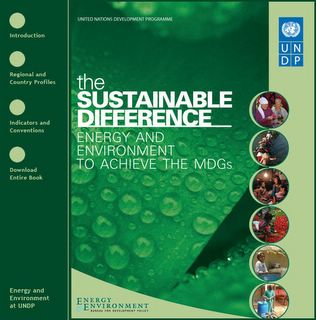COHA Memorandum to the Press
PetroCaribe: Chávez’s Venturesome Solution to the Caribbean Oil Crisis and Trinidad’s Patrick Manning and Barbados’ Owen Arthur’s Ungracious Riposte
• Chávez’s PetroCaribe is the best available solution to the Caribbean’s energy crisis.
• PetroCaribe will propel public sector development of energy infrastructure and promote social programs to help the region.
• 13 out of 15 CARICOM members have signed on, but Barbados and Trinidad and Tobago stubbornly refuse, for mean-spirited, rather than high-minded, reasons.
The unremitting surging global price of oil has crippled the economies of many small, poor nations, and the tourism-dependent Caribbean countries are among the most vulnerable. Into this bleak picture has emerged a possible savior in the person of Venezuelan president Hugo Chávez and his principled PetroCaribe plan.
The arrangement, which was signed with 15 countries last September, promises discounted oil and wide reaching social components. Yet this act of generosity has not gone smoothly, as controversy over the proposal has revealed nasty rifts within the Caribbean Community (CARICOM), primarily involving Trinidad and Tobago’s unflinching and self-interested opposition to the proposal, and Barbados’ equally muscular resistance.
Nonetheless, whatever objections have been raised by these two nations, PetroCaribe is the best offer on the table, and for the 13 CARICOM governments (along with Cuba and the Dominican Republic) that have accepted it, this could prove to be the best exit from their current misery.
Structure of the DealAs famed Caribbean reporter Tony Best clearly establishes in the January 24, 2006, issue of Carib News, PetroCaribe does not offer cheap oil, as Venezuela’s OPEC obligations prohibit sales at below market value. Instead, its innovative approach allows area countries to defer part of the payment.
The deal functions by a means of a discount whereby contracting countries are required to pay a percentage of the market price, with the remaining cost converted into long term, low interest loans. When market prices rise above US$50 per gallon, as they are now, participating countries will receive a 40 percent discount that will accrue as a 25-year, 1 percent interest loan. If prices rise above US$100, this discount will rise to 50 percent.
Member countries’ debt may be partially amortized by means of paying in goods and services, like Venezuela’s existing arrangement with Cuba. That program is popularly known as “doctors for oil,” in which Cuba sends over ten thousand doctors, nurses, and dentists to provide free health care in clinics in Venezuela’s poorest communities, in exchange for 90,000 barrels of Venezuelan oil per day.
Under the agreement, Venezuela will cover shipping costs, aid in the development of distribution infrastructure and storage sites, contribute to the formation of state-controlled facilities, and provide fuel-efficient systems in member countries. The one catch is PetroCaribe will only deal with a state controlled entity, meaning that the PetroCaribe agreement is based on eliminating all intermediaries. “We're not talking about discounts...We're talking about financial facilities, direct deliveries of products, [and] infrastructure,” said Energy and Petroleum Minister and President of PDVSA, Rafael Ramírez; the goal is to cut down on unnecessary, middlemen costs.
This means that existing U.S. area distributors, Shell and Texaco, would be excluded from purchasing subsidized Venezuelan oil under the envisaged program. In effect, participating CARICOM countries will be edged in the direction of de-privatizing their oil industry infrastructure in favor of setting up state-guided facilities. Distribution will be managed by PDV Caribe, a subsidiary of PDVSA, which will be set up to handle shipment and delivery of the crude, although questions regarding the establishment of regional refining capacity remain.
According to the Oil and Gas Journal, PDVSA has refining facilities in the U.S. Virgin Islands (495,000 barrels-per-day), as well as a 320,000 barrels-per-day facility in the Netherlands Antilles, while other major refineries can be found in Trinidad and Tobago and Cuba. The Jamaican government, spurred by PetroCaribe, has moved forward on a plan to build a refinery on that island as well.
Bonanza from HeavenAdditionally, Venezuela has created a $60 million fund for social projects on Jamaica. For some island economies, PetroCaribe is seen as a bonanza from heaven. Antigua and Barbuda’s Prime Minister Baldwin Spencer has enthused that, “The current crippling impact of continually rising energy costs on our fragile economies is a current case in point.
Venezuela’s offer of stable fuel supplies on concessionary terms through the PetroCaribe initiative is therefore a timely – and welcome – intervention for member countries of the Caribbean Community.” In a like-minded mood, Prime Minister Keith Mitchell of Grenada notes that his country will be able to accrue a total savings of between $10-15 million annually as a result of the Venezuelan deal.
Who’s in, Who’s OutInitially, PetroCaribe’s was offered to the all 15 CARICOM member countries, Antigua and Barbuda, the Bahamas, Belize, Dominica, Grenada, Guyana, Jamaica, Suriname, St Lucia, St Kitts and Nevis, and St Vincent, the Grenadines, and Trinidad and Tobago, as well as Barbados. However the latter two have quite directly declined the offer. Cuba and the Dominican Republic, who already have existing agreements with Venezuela, are also included in the plan.
Haiti has been at the margins of the deal, as significant controversy revolves around that country’s recent political history. At first, Haiti was not offered inclusion in the PetroCaribe arrangement, as Chávez does not recognize the U.S.-installed controversial Latortue interim government. However, as of early October 2005, Venezuela announced the possibility of Haiti’s participation due to pressure coming from a Haitian interest group, the “Collective to Mobilize against the High Cost of Living,” which Chávez happens to hold in high esteem. As a result, Latortue was allowed to apply for membership in PetroCaribe in November, which would make Haiti the latest country to join, if voted upon.
However, PetroCaribe will not be launched in Haiti until after elections are held and the installation of a new administration in Port-au-Prince. With elections now being postponed to Feb. 7, 2006, for the fourth time since last November, the launch of PetroCaribe’s operations in Haiti may remain relatively remote.
Sitting it OutBarbados’ decision not to join the other CARICOM nations in signing on to PetroCaribe is based on a smattering of valid reasons and certainly what appears to be an ample dose of exported Washington-influenced paranoia. Barbados produces some oil – although far less than it consumes – and has an existing arrangement with Trinidad and Tobago to refine that oil. Maintaining this refinery relationship, as Barbados’ government has indicated that it felt Venezuela was reluctant to refine the island’s crude, has contributed to Bridgetown’s opposition to PetroCaribe.
Furthermore, the deal between Barbados and Trinidad and Tobago includes a preferential supply agreement, and Barbados claims that any changes to the existing supply chain are only likely to create complications.But such factors aside, it is no secret that Prime Minister Owen Arthur has been a loyal liegeman of President Bush and his litany of other objections to the deal seem to be born out of contrivances rather than on solid grounds, more the results of a man hunting for an excuse rather than one deferring to irresistible logic.
These include his thesis that PetroCaribe will lead to serious debt problems, which seems somewhat silly considering that the region currently must borrow extensively to cover its needs, and that the PetroCaribe loans are based on highly flexible and attractive repayment terms.
Self-Interested OppositionTrinidad and Tobago, a member of CARICOM whose approximately 150,000 barrel-per-day oil industry and major refining capacity has made the island wealthy, was a logical choice to supply the region with subsidized petroleum. But Port-of-Spain’s oil strategy is partially restricted by its existing international commitments – its industry is closely tied to U.S. oil operations – making options for discounting oil prices to CARICOM countries somewhat limited. Indeed it has always hesitated to extend discounts to its less-fortunate neighbors – a fact which the Caribbean has not overlooked.
Yet despite his unwillingness to step up and help his fellow Caribbean islanders, Prime Minister Manning has continually blasted the PetroCaribe agreement, cautioning that PetroCaribe could force the islands into an agreement which will betroth them to a sole-provider situation, perhaps inexorably locking to future problems.
More stridently, Manning also has blustered that if the region walks away from its current arrangements with him (currently Trinidad and Tobago supplies the region with 60,000 barrels-per-day) and reorganizes its oil sectors under PetroCaribe, his country will look elsewhere for permanent buyers and that in the future the rest of the Caribbean may not be able to count on his country’s previously committed oil supply. Manning spitefully warns that, “it is a question of cutting your own throat if you are not careful.”
This undeniable self-interest – the same attitude that he and Arthur more often than not displayed in their desire to harmonize their position to one which would cause Washington no grief – has been publicly criticized by at least one regional leader, and by several more, privately. Prime Minister Kenny Anthony of Saint Lucia asserts that "Rather than Trinidad and Tobago suggesting that they are incapable, or that they are unable to do anything about the high prices we are forced to pay, they should rethink that position...”
He, of course, believes that Trinidad and Tobago, in fact, is quite capable of providing some formula that could ease the effects of record high oil prices in the Caribbean, but they are not showing any desire or initiative. Instead, fellow `CARICOM members, without any alternative options being placed on the table by Trinidad and Tobago, may have little choice but to go along with PetroCaribe.
The Best Thing GoingPetroCaribe is not without flaws and logistical hang-ups, yet it remains the most concrete proposal on the table to alleviate the region’s suffering. Chávez’s intention is patently not self interest or glorification, as he is not exactly aiding a region with significant global diplomatic or economic clout.
Furthermore, objections to the proposal – specifically by Trinidad and Tobago – are not based on well-reasoned arguments, but rather on stubborn selfishness and shameless servility to Washington.These pitiful motives are often a fact of life when it comes to Arthur – certainly so when it has come to pushing the hapless and inept interim government of Gerard Latortue on the Haitian people at Washington’s behest.
Can Arthur’s heartless Haiti policy in any way be compared to that of the statesmanship of his predecessor Erskine Sandiford who trivializes Arthur by his stature? And Trinidad’s Manning has likewise unwaveringly worked to override moral objectors within CARICOM and extend official recognition to the Latortue regime, going so far as to meet with the interim leader last week in Bridgetown.
In regards to PetroCaribe, Manning’s flat refusal to offer any sort of discount to his neighbors should be a cause for embarrassment, and his haughty threats against those who do accept Chávez’s largesse are shameful at best. PetroCaribe will offer 15 islands the best hope for riding out the energy crisis, and cannot be repudiated as some regional naysayers would very much like to see happen.
This analysis was prepared by COHA Research Associate Kaia Lai, 2006January 31, 2006 The Council on Hemispheric Affairs, founded in 1975, is an independent, non-profit, non-partisan, tax-exempt research and information organization. It has been described on the Senate floor as being “one of the nation’s most respected bodies of scholars and policy makers.” For more information, please see our web page at www.coha.org; or contact our Washington offices by phone (202) 223-4975, fax (202) 223-4979, or email coha@coha.org












